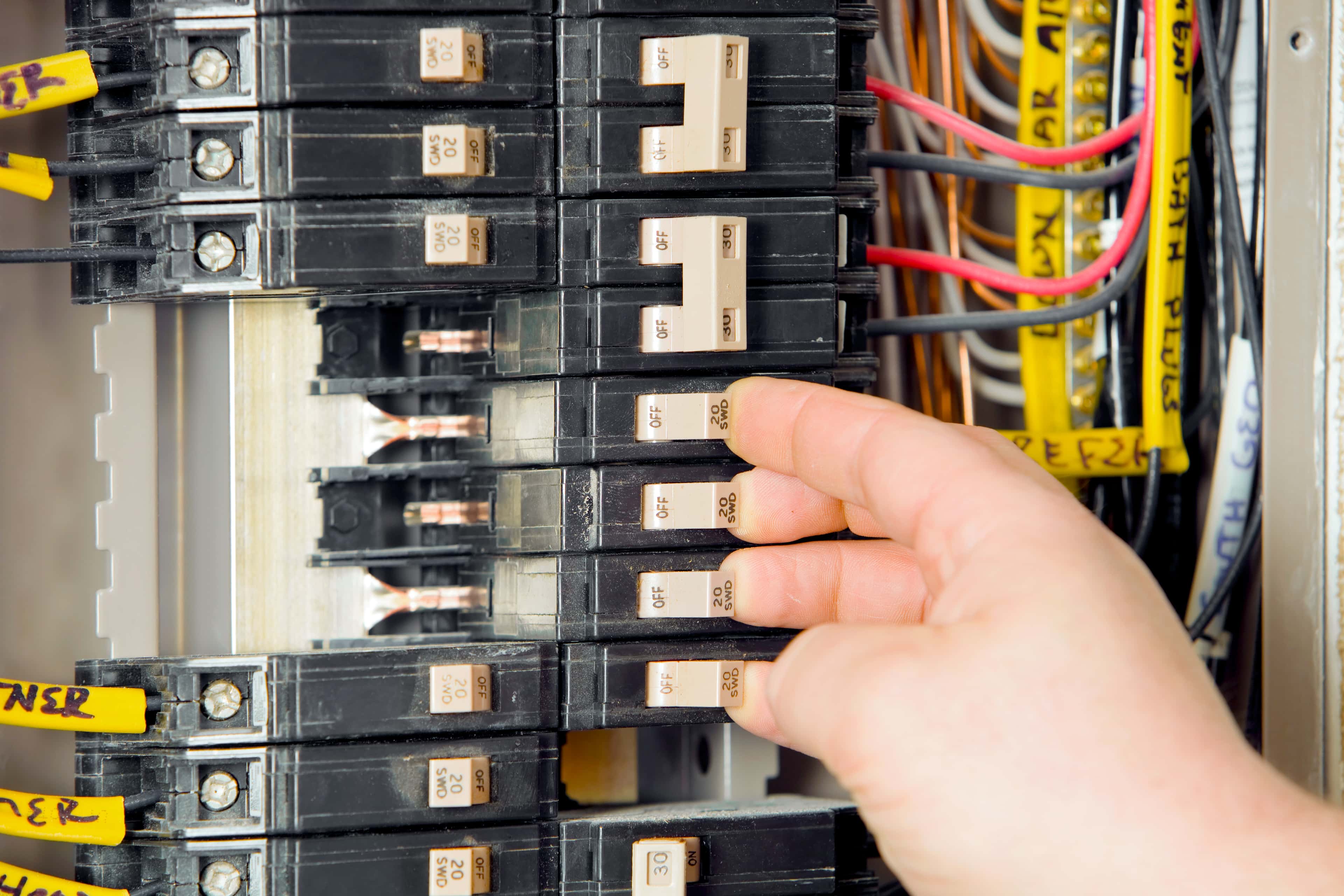If you’ve ever wondered what powers your home, car or even your favorite tech device, it all comes down to two types of electrical current: AC and DC.
Understanding the difference between AC vs. DC is essential knowledge for anyone pursuing a career as an electrician technician.
That’s why it’s a focus in Universal Technical Institute’s 12-month Electrical, Electronics, & Industrial Technology (EEIT) program. Students dive into all things electrical, including AC and DC electrical theory, so they’ll be prepared for entry-level roles in the industry after graduation.130
In this article, we’ll break down how each type of current works, their advantages and where you’ll see them used in real-world applications.
What Is AC Power?
AC, or alternating current, is a type of electrical current that changes direction periodically. In other words, the flow of electrons switches back and forth in a wave-like pattern.
This characteristic makes AC ideal for transporting electricity over long distances. Why? Because AC power can easily be transformed into higher or lower voltages using transformers. When voltage is increased, less energy is lost during transmission, making AC power the go-to for delivering electricity from power plants to homes and businesses.
What Is DC Power?
DC stands for direct current, a type of electrical flow where electrons move in a single, constant direction. Unlike AC, DC doesn’t alternate, making it ideal for powering electronic devices that require stable, consistent voltage.
One of DC power’s major advantages is its ability to be stored efficiently in batteries. This makes it the preferred choice for mobile devices, electric vehicles and renewable energy systems that store power for later use.
What Are the Applications of AC and DC Power in Electrical Technology?
Both AC and DC power play vital roles in modern electrical systems. Each type is suited for different tasks, depending on the application and the device or system being powered. In UTI’s EEIT program, the differences between AC vs. DC power is a topic covered during courses and lab work.
Applications for AC power
Electrical systems: Residential and commercial
The electrical systems that power homes, office buildings and retail spaces rely on AC power to efficiently deliver electricity to outlets, lighting fixtures and major appliances.
Power distribution grids and substations
AC power is the foundation of the electrical grid. It’s generated at power plants, then stepped up to high voltages for transmission and stepped down again for safe use in homes and businesses.
Machinery and appliances: Electrical motors
Many industrial machines and household appliances, such as washing machines and HVAC compressors, use AC-powered motors due to their efficiency and durability.
HVAC systems
Heating, ventilation and air conditioning (HVAC) systems typically run on AC power, allowing for reliable performance and compatibility with standard electrical infrastructure.
Applications for DC power
Devices powered by batteries
DC is the standard for portable, battery-powered devices like smartphones, laptops, flashlights and handheld tools, thanks to its stability and efficiency.
Automotive systems
Modern vehicles, especially electric and hybrid models, depend heavily on DC power to run everything from drive systems to onboard electronics and control units.
Computer systems
DC power is essential for computers and data centers, where consistent voltage is necessary to ensure smooth processing, data transfer and component protection.
Renewable energy solutions
Solar panels and wind turbines generate DC electricity. This power is either used directly, stored in batteries or converted to AC for grid integration. The use of DC in these systems is critical for sustainable energy storage and distribution.
Power Up Your Electrician Technician Career Prep with UTI
Understanding the differences between DC vs. AC power is a foundational skill for anyone entering the electrical field. If you're ready to turn this knowledge into a hands-on career, UTI can help.
Our EEIT program equips graduates with the training needed to become job-ready electrician technicians. You’ll learn how to work with both AC and DC systems, troubleshoot problems and prepare for a wide range of opportunities in residential, commercial and industrial settings.
Take charge of your future when you enroll in UTI’s EEIT program and start preparing for a career!
Universal Technical Institute of Illinois, Inc. is approved by the Division of Private Business and Vocational Schools of the Illinois Board of Higher Education.

